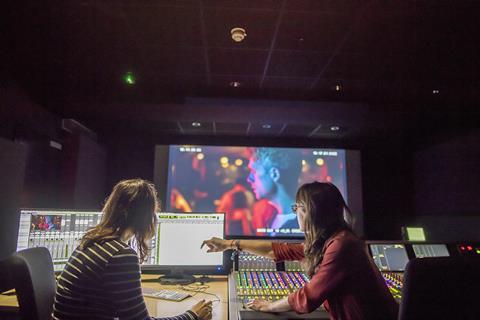More than 75% of apprentices in two-year TV scheme secured further employment
A ScreenSkills test scheme has indicated the value of apprenticeships in the TV industry, particularly for people from diverse and working class backgrounds.
The ScreenSkills Flexi-Job Apprenticeship Pilot report revealed the results of the two-year flexi-job apprenticeship agency (FJAA) pilot programme, which saw 37 apprentices recruited through two cohorts.

The apprenticeships were for the roles of production assistants, production coordinators, assistant production accountants and post-production technical operators. The initiative was supported by Amazon Prime Video, Sky/APX Content Ventures, Banijay, Fremantle and Lime Pictures.
While three people left at the end of the pilot’s first year, more than three quarters of the remaining 34 apprentices secured further employment by the end of the pilot with companies including Hat Trick, Studio Lambert and Mindhouse.
The apprentices’ demographic makeup surpassed ScreenSkills’ own diversity targets and was more diverse than the sector as a whole. It saw 26% of participants coming from working class backgrounds, a higher percentage than the general UK workforce (23%). Nearly 70% of participants were female, with 20% of the apprentices from minority ethnic backgrounds while 17% had a disability.
Some 85% of the scheme participants felt the scheme better prepared them for the workforce while 75% said they would recommend a screen industries apprenticeship.
ScreenSkills chief executive Laura Mansfield said that the pilot had been an overall success, noting that 85% of apprentices passed their End Point Assessments.
“The UK screen industries is one of the most creative sectors in the world and talent, ability and creativity should not be defined by educational or social background,” she said. “The pilot identified a number of areas for improvement which, if resolved, could make apprenticeships a viable option for anyone who wants a career in the sector.”
Bella Lambourne, director of human resources and operations at Banijay, said: “The training provided has enabled the apprentices to go to the next level and in some cases build entirely new careers with a professional qualification behind them that we hope will stand them in good stead for the rest of their careers. Apprenticeships need to be as flexible as possible to work in the creative industries and this would not have been possible without the support of ScreenSkills.”
One area for improvement highlighted in the report was the costs associated with the “expensive” training model.
The scheme cost £1.9m in total, with the Department for Education providing £410,000 in funding for the first year, with the second year funded by industry partners.
The partners had to meet additional costs beyond training, including apprentice wages during leave and training, recruitment and costs incurred by the requirement of coordinating continuous and appropriate placements.
The scheme also spotlighted the need to improve apprenticeship standards and the EPA process to ensure candidates had the best chance to successfully complete the relevant training.
Growth and skills levy
ScreenSkills also backed the government’s proposal for a growth and skills levy which would give companies greater flexibility in how they invest in skills and training.
“Apprenticeships provide a real opportunity to improve the diversity of the workforce and bring different and existing new voices and perspectives into the industry,” said Mansfield.
“ScreenSkills welcomes the Government’s plan for a Growth and Skills Levy. Not only would it unlock greater potential to invest in skills and training across the industry but could also improve the take up and affordability of apprenticeships for future candidates and employers alike.”
































No comments yet